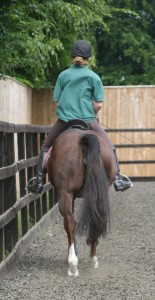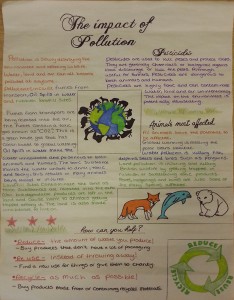A Hertfordshire veterinary hospital is emphasising the importance of worming dogs properly, following the recent referral of several dogs needing urgent treatment for potentially fatal lungworm infection.
Davies Veterinary Specialists (DVS), a private small animal referral hospital based at Higham Gobion in Hertfordshire, has treated four cases of serious lungworm infection over the past couple of months, all within around 30 miles of each other. Usually the practice only sees two or three lungworm cases a year, at most. It is thought that the increase in cases could be the result of a lack of knowledge amongst some owners about the right wormers to use, as well as the fact that lungworm appears to be getting a stronger foothold in some areas, possibly due to factors such as climate change.
The lungworm Angiostrongylus vasorum is a parasite carried by slugs and snails and also spread by foxes. Dogs can become infected if they accidentally eat these pests when drinking from puddles, eating grass or playing with toys outside. The adult lungworm lives in the heart and major blood vessels that supply the lungs. If left untreated lungworm infection can be fatal, causing irreparable damage to the heart and brain, often because it causes bleeding. Untreated dogs will pass lungworm larvae in their faeces, increasing the spread of the parasite.
Dog owner Irené O’Hanlon-Marin, from Beaconsfield, recently witnessed the dangers of this potentially lethal parasite. Her young Cocker Spaniel Honey almost died from severe lungworm infection, despite the fact that she has always been wormed regularly. Vets initially believed the dog’s symptoms of neck pain, breathlessness, shaking and lethargy to be the result of a recent head injury. Serious alarm was raised when Honey appeared to suffer a fit three weeks later, became unable to walk and lost her vision in one eye. She was immediately referred to DVS as an emergency, where a prompt diagnosis by DVS Specialists saved her life.
Peter Smith, Neurology Specialist at DVS, explains: “Honey was in a pretty serious condition when admitted here and would, I suspect, have died if she’d been left another few hours. She’s now back home and much improved, and appears to be regaining her sight.”
Irené O’Hanlon-Marin continues: “It scares me to think how little I knew about lungworm and the fact that I need to use a specific wormer for it. We have been so lucky with Honey but I am determined to help prevent other dogs going through what she suffered so we all need to help spread the word about the dangers of this parasite.”
Recent research has shown that cases of lungworm are on the increase. Honey is one of four cases of serious lungworm infection seen by DVS over the past few months. The other cases were in High Wycombe, Pinner and St Albans. All patients have recovered well, though all could have died without prompt treatment.
Peter Smith concludes: ““We are concerned that many owners worm their dogs regularly, little realising that many widely used drugs do not treat lungworm infection adequately. It is crucial to discuss your dog’s worming programme with your vet, to avoid using ‘off the shelf’ drugs that might leave your pet vulnerable.”
For further information and advice on worming visit www.vetspecialists.co.uk



